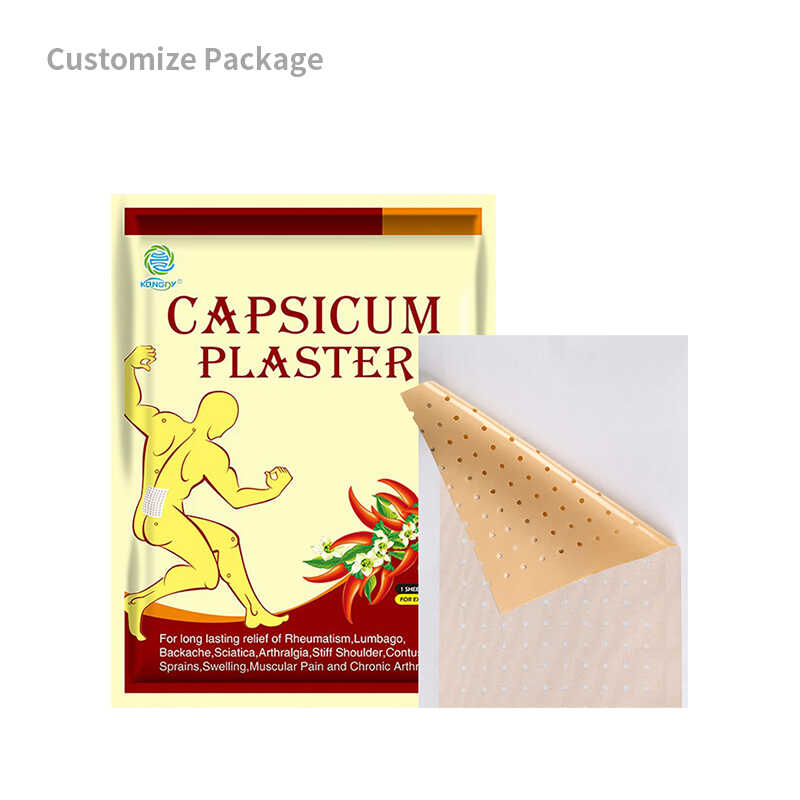Ensuring Compliance for Custom Capsicum Plaster Products with General Industry Regulations
In the dynamic and evolving healthcare industry, Capsicum Plaster manufacturers face the challenge of ensuring that their Custom Capsicum Plaster products comply with stringent general industry regulations. This article delves into the measures taken by manufacturers to achieve this compliance, with a focus on SEO-optimized content.
1. Understanding and Interpreting Regulations
The first step for any Capsicum Plaster manufacturer or OEM is to thoroughly understand the general industry regulations that govern their products. This includes regulations from bodies like the FDA (Food and Drug Administration) and CE (Conformité Européenne) for international sales. Manufacturers need to have a dedicated team or consultants who stay updated on any changes or amendments to these regulations.
2. Quality Control Systems
A robust quality control system is crucial for ensuring compliance. This includes rigorous testing of raw materials, intermediates, and finished products to ensure they meet quality standards and specifications. Manufacturers should also have a system for traceability, allowing them to identify the source of any issues quickly.
3. Documentation and Record-Keeping
Detailed documentation and record-keeping are essential for demonstrating compliance. Manufacturers should have a system for capturing all relevant information, including test results, ingredient sources, manufacturing processes, and any deviations or corrective actions taken. This information can be used to support compliance claims during audits or inspections.
4. Training and Awareness
All employees involved in the manufacturing process should be trained on the regulations that apply to the products they handle. This includes understanding the importance of compliance, identifying potential issues, and knowing how to report them. Regular training sessions and refresher courses can help maintain awareness and compliance.
5. Supplier Management
Suppliers play a crucial role in ensuring product compliance. Manufacturers should have a robust supplier management system that includes auditing suppliers' facilities, assessing their quality control measures, and ensuring they meet all relevant regulatory requirements.
6. Certification and Accreditation
Seeking certification and accreditation from recognized bodies can demonstrate a manufacturer's commitment to compliance. These certifications, such as ISO 13485 for medical device manufacturers, can provide customers and regulators with added confidence in the quality and safety of the products.
7. Continuous Improvement
Compliance is not a one-time event; it requires continuous monitoring and improvement. Manufacturers should have a system for identifying potential areas of improvement, assessing the risks associated with these areas, and implementing corrective actions to mitigate those risks.
Related Questions and Answers
- How often do manufacturers need to update their knowledge of industry regulations?
- Manufacturers should stay updated on industry regulations continuously, as changes and amendments can occur at any time.
- What role does supplier management play in ensuring product compliance?
- Supplier management is crucial in ensuring product compliance as suppliers provide the raw materials and components that make up the finished product.
- What is the importance of training and awareness for employees?
- Training and awareness help employees understand the importance of compliance, identify potential issues, and know how to report them, which is essential for maintaining a compliant manufacturing environment.
- What are the benefits of seeking certification and accreditation?
- Certification and accreditation demonstrate a manufacturer's commitment to compliance and provide customers and regulators with added confidence in the quality and safety of the products.
By implementing these measures, Capsicum Plaster manufacturers can ensure that their Custom Capsicum Plaster products comply with general industry regulations, meeting the needs of their customers and regulatory bodies while positioning themselves favorably in the competitive marketplace.






